Download Smartglass Brochure
spaces that adapt to users’ needs at the flick of a switch.
The UK’s Health Protection Agency (HPA) has published the results of the fourth HCAI Point Prevalence Survey.
The report provides a snapshot of the levels of healthcare-associated infections (HCAI) in Autumn 2011.

Compared with the previous HCAI PPS survey carried out in 2006, there was an overall drop in HCAI prevalence from 8.2% in 2006 to 6.4% in 2011.
Results from this year’s survey showed that:
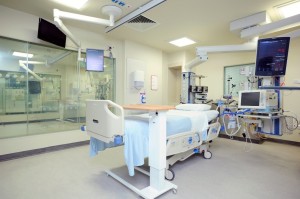
SmartGlass provides instant privacy at the flick of a switch. Users can immediately switch SmartGlass from clear to private (opaque) and vice versa. SmartGlass provides added value and increased flexibility in new build and refurbishment hospital designs, helps reduce HCAIs, improves working environments and increases the well being of occupants.
SmartGlass provides healthcare patients with privacy and dignity allowing them to be protected at all times in a clean and safe environment which is proven to speed up recovery time and improve general patient well being. SmartGlass offers a sheer, easily cleaned surface replacing traditional blind systems which are difficult to clean & maintain and high risk in terms of harbouring dirt and bacteria associated with super bugs such as MRSA.
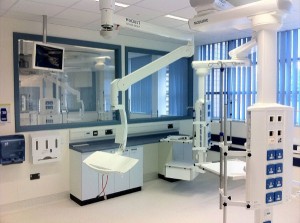
Cleaning SmartGlass can be done far more cheaply, supporting regular cleaning regimes with much less time and effort compared with traditional partitioning. Dr. Allison McGeer, head of infection control at Toronto’s Mount Sinai Hospital highlighted some of the issues with privacy curtains. Privacy curtains, she explained, are difficult to clean and take considerable time taking them down, washing them and putting them back up: “Changing bed linen, that’s easy. Changing privacy curtains, on the other hand, is a pain in the neck.”
SmartGlass partitioning also fits well with NHS directives to improve patient privacy and dignity by allowing patients to be in command of their surroundings. It provides for better soundproofing than curtains, giving patients enhanced control in resting and sleeping at their own behest. The glass also lets in lots of light in both on and off states, which can help provide for a more holistic recovery process.
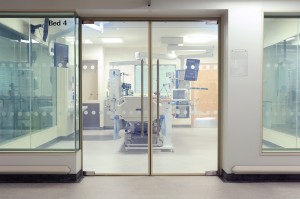
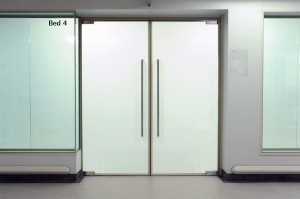
SmartGlass can be used as wall panels, internal doors and windows, x-ray screens, room dividers or mobile isolation screens. It offers the patient dignity and privacy, allowing hospital staff to safely and efficiently review patient wellbeing, while crucially providing several key facets for reducing hospital acquired infections.
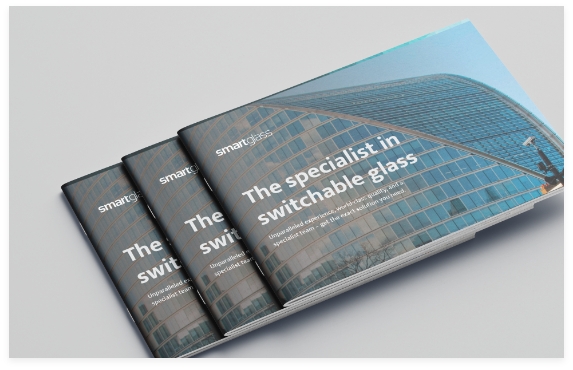
Wherever you are in the world one of our team will be in touch to advise on the best smart glass solution for your needs.